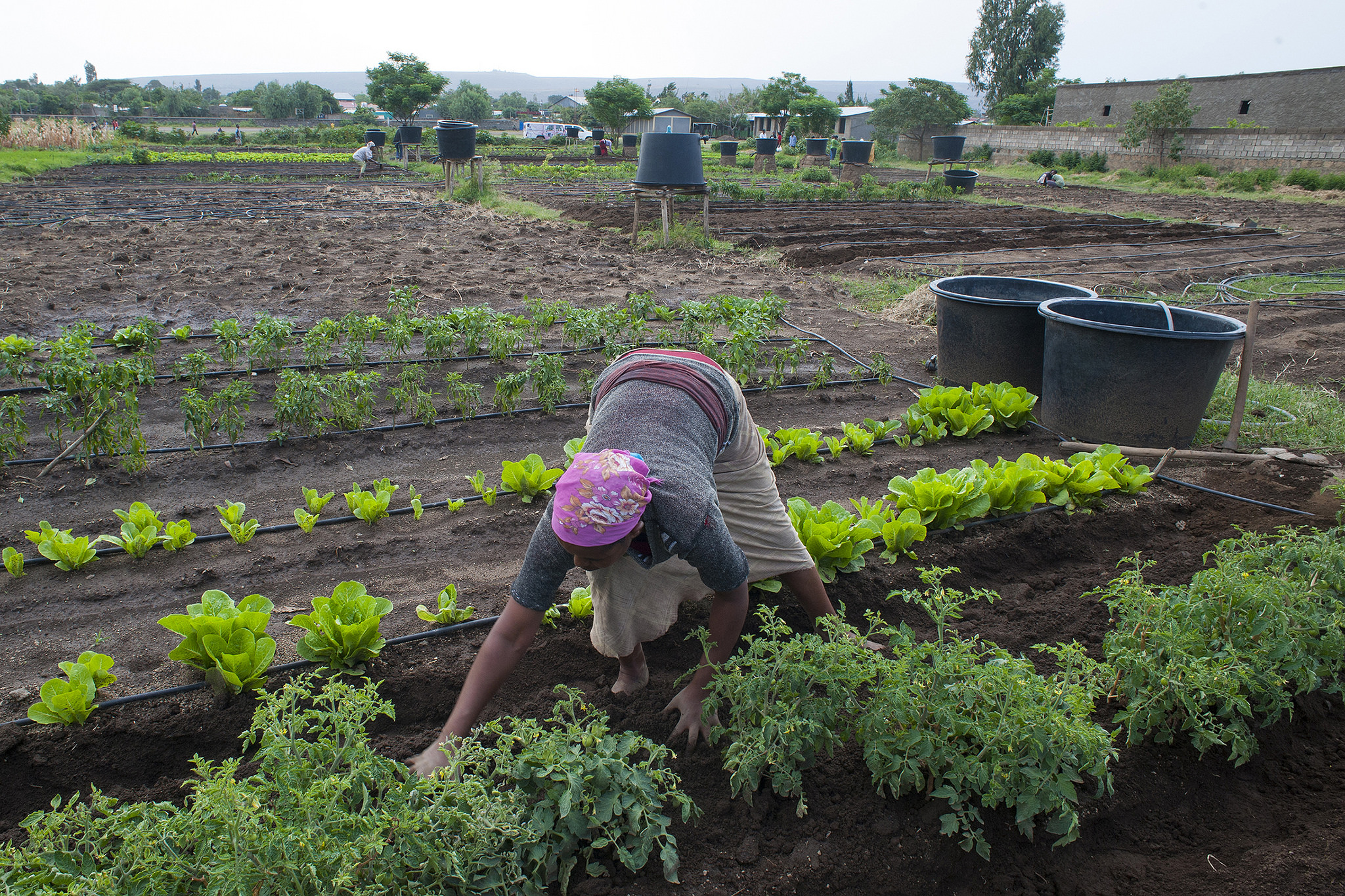New Project in Ethiopia Funded by Italy Replicates Model of Adaptation Fund-Financed Project in the Country
Adaptation Fund, Italy Synergy Helps Create Wider Change for Most Vulnerable
Washington, D.C. (October 3, 2018) — An Adaptation Fund (AF) project in Ethiopia aimed at helping the most climate-vulnerable communities adapt to frequent droughts, flooding, and rainfall variability has been replicated by the government of Italy in a new project focused on other regions of the country that are similarly affected by climate change.
The new US$ 4.25 million project is funded by Italy and implemented by Ethiopia’s Ministry of Environment, Forests and Climate Change (MEFCC), which is one of the executing entities of the AF-funded Ethiopia project. It uses the same methodologies as the AF project, employing climate-resilient integrated water management, climate-smart agriculture and capacity-building approaches to vulnerable pastoralist communities in the regions of Afar and Ethio-Somale.
“Since 2015, we have co-financed the Adaptation Fund with 14 million euros and, since the end of 2016, we have been cooperating with the Ethiopian Ministry of Environment. Under this bilateral cooperation we are currently carrying out five projects that have been identified as a priority by our counterpart, the Ministry of Environment, Forests and Climate Change (MEFCC) of the Federal Democratic Republic of Ethiopia. This is the framework where the ‘Climate Smart Integrated Rural Development Project in the Pastoralist Areas of Ethiopia has been launched’,” said Francesco La Camera, Director General of the Italian Ministry for the Environment, Land and Sea. “The ambitious goals set by the Paris Agreement and the (United Nations Sustainable Development) Agenda 2030 can be hit only through an extraordinary mobilization of all available resources and a coherent synergy among different sources and channels of intervention. This is one of the reasons we are very proud of this project that pulls together resources coming from bilateral and multilateral channels.”
Meanwhile, the US$ 9.98 million AF-funded project in Ethiopia approved last year is being implemented by the Adaptation Fund’s national implementing entity for Ethiopia, the Ministry of Finance and Economic Cooperation, along with several Ethiopian government ministries serving as executing entities — including MEFCC. The project increases resilience to recurrent droughts in highly vulnerable districts in the Oromia, SNNP, Harerri, Tigray and Amhara regional states and Dire Dawa city administration through an integrated water, agriculture and natural resource management approach.
Agricultural production in Ethiopia is largely composed of small-scale subsistence farming and the AF project helps to manage drought risks and address land and soil degradation with sustainable approaches. In this regard, “These AF projects are believed to enhance the adaptive capacity and build the resilience of the community in the project targeted areas and thereby contribute to the realization of the CRGE (Ethiopia’s Climate Resilient Green Economy) strategy and NDC (National Determined Contribution of the Paris Agreement) of Ethiopia. Particularly, the US$ 4.25 million grant from Italy helps the country to address the highly vulnerable pastoralist community via replicating the adaptation actions to manage drought risks, harness land and soil degradation through introducing adaptation planning, water conservation, climate-smart agriculture, water and forest integration, climate-resilient livelihood diversification, capacity building and learning,” says H.E. Mr. Wordy Hashim, Director General at MEFCC in Ethiopia.
A key pillar of AF’s strategic approach is to not only fund concrete, tailored adaptation actions in vulnerable countries, but to share those valuable experiences and models so that they can be replicated or scaled up with other funds to create wider change. It has happened in several instances to date, including in Pakistan, Georgia, Maldives, Senegal, Morocco, Colombia, Antigua and Barbuda, and now Ethiopia.
“It is great to see innovative actions from the Adaptation Fund in Ethiopia being replicated by Italy to reach even more vulnerable communities in need of urgently needed adaptation solutions,” said Víctor Viñas, Chair of the Adaptation Fund Board. “The Fund is making tangible impacts on the ground for many vulnerable communities across the globe, but also has great value as a learning institution in pioneering new models that can be scaled up and this is a great example of that. It is also a key part of our five-year strategy going forward as we try to help address the enormity of climate change through increased collaboration and synergies.”
Italy has been a consistent and increasing contributor to the AF over the last few years, so multiplying the effects of the first Ethiopian project also enhances the synergy between AF and Italy in helping the most vulnerable communities in developing countries adapt to the rising impacts of climate change. Italy has contributed a total of US$ 16.38 million to AF from 2015-2017 (with contributions increasing from US$ 2.1 million in 2015 to US$ 5.5 million in 2016 and US$ 8.6 million last year).
“In recent years, the significant gap in climate change adaptation finance worldwide compared to the urgent and pressing needs for adaptation action has become ever clearer. This requires us to use the scarce resources that are available efficiently, and replication of functioning models between different sources of funding is a practical way to do that,” said Adaptation Fund Manager Mikko Ollikainen. “In this case, the replication of AF’s project enhances the partnership we have with Italy even further, while also making some of the most vulnerable agricultural communities in Ethiopia more resilient to droughts.”
ABOUT the ADAPTATION FUND
Since 2010, the Adaptation Fund has committed US$ 532 million including for 80 concrete, localized climate change adaptation projects in vulnerable communities of developing countries around the world, with over 5.8 million direct beneficiaries.
Communications: Matthew Pueschel, mpueschel@adaptation-fund.org or +1-202-473-6743
Attachments
| Attachment | Type | Size |
|---|---|---|
| Press release October 2018 | 352 KB |



